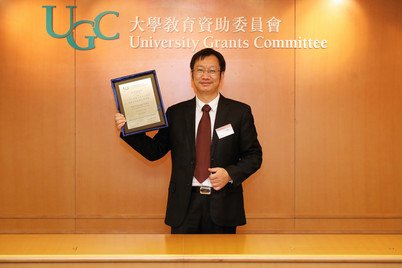Nano Solutions for Cleaner Air and Water
Our filter delivers safe drinkable water in less than one minute, simple and reliable, and no electricity is needed.
When a natural disaster strikes, one of the most immediate and crucial needs is clean water. Water is a basic requirement for human survival, but when an earthquake or tsunami hits, supplies of clean water are often affected and the water itself can be contaminated. Removing pollutants quickly and efficiently can now be done, thanks to the invention of new filters and membranes that can remove toxic heavy metals and pathogens from water instantly.
The filters invented by Professor Chuyang Tang’s membrane research group at the Department of Civil Engineering, are a thousand times more permeable than conventional ultrafiltration membranes, meaning clean water can filter through quickly and easily under gravity force, leaving impurities behind in the filters. The removal efficiency of the filters is exceptionally high: Escherichia coli filtration tests showed a removal of more than 99.9999 per cent and more than 99.9 per cent removal of lead, cadmium, nickel, and zinc. More pollutants are now being targeted. “We are very excited that our latest novel water filters are highly effective for the removal of perfluorinated compounds (PFCs) at greater than 95 per cent,” Professor Tang said.
The filters are fitted into compact and easily portable devices, such as foldable cups and jugs, which are fitted with highly porous nanofiber membrane filters. Requiring no electricity to operate, the filters are cost-effective to make, and can be washed and reused.
“After an earthquake or tsunami, there is often no reliable supply of clean water nor electricity, so you need something practical for disaster relief,” Professor Tang said. “Our filter fits in very well. It delivers safe drinkable water in less than one minute, simple and reliable, and no electricity is needed.”
A version of the filter has been developed for use in homes to filter lead from household tap water, and the small pocket-size of the products means that they will also be useful for travellers.
The filters and membranes are also used for cleaning the air, an issue that has become critical as the world grapples with COVID-19. Professor Tang’s team has made a patented nanofibrous filter that can be used in reusable face masks and which have a high rate of removal of particulates compared to existing face masks. The diameter of the nanofibers in these filters are much smaller than those in the fibres used in typical face masks, making them more efficient at filtration. A double-layered filter can remove 99 per cent of nano-sized air particles, including virus-containing respiratory droplets. The masks comprise an inner layer for finer filtering and an outer layer with larger nanofibers which stop the filter from getting wet through its hydrophobic properties.
The filters won Gold Medal at the 47th International Exhibition of Inventions of Geneva and have resulted in 10 publications, five patents, and several awards. They are now being prepared for commercial production.
Professor Chuyang Tang of the Department of Civil Engineering received the HKU Innovator Award 2020.


